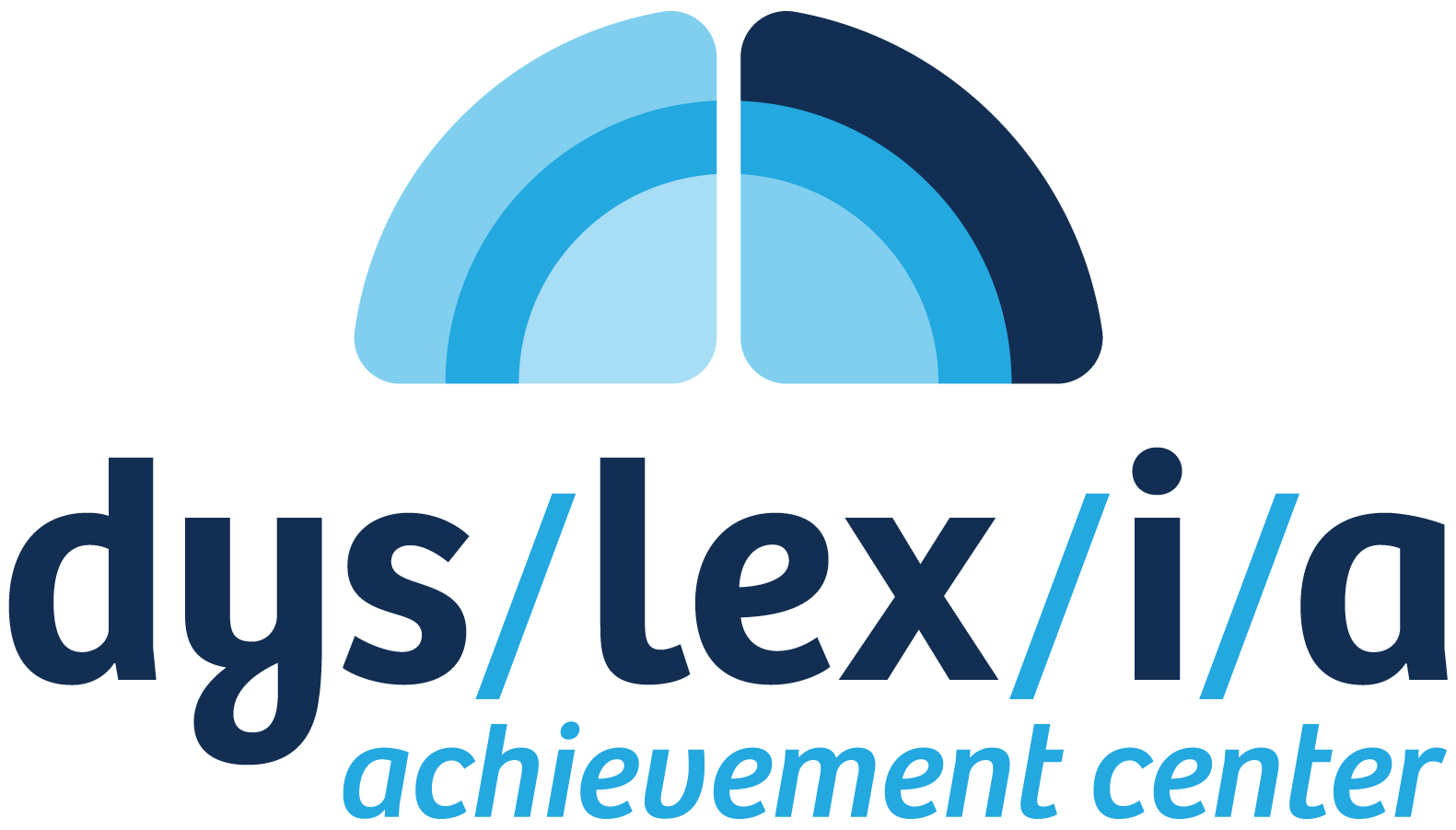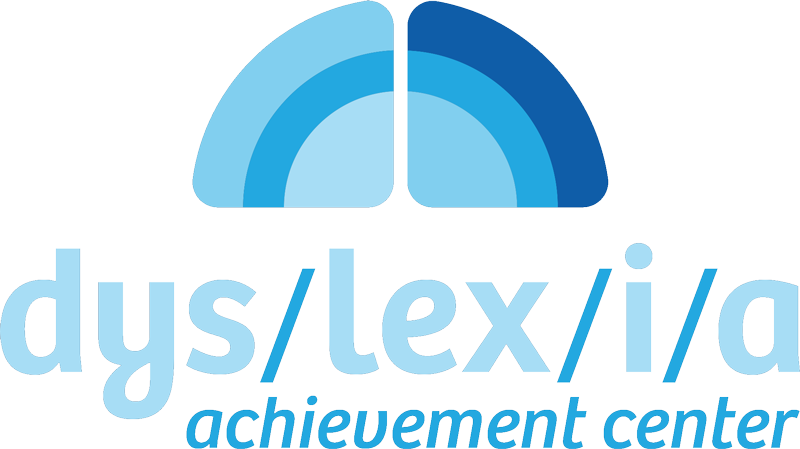Resources
Resources for Parents
Parent FAQs
The assessments we conduct can look at children as young as 4-6. However, the assessment may not show accurate results if there are only mild symptoms of dyslexia present due to the young age. We see the best results in ages 7 and above.
It is possible, but not certain until an assessment is performed. Dyslexia is present in nearly 1 in 5 children (Shaywitz, 2017).
DYSLEXIA ACHIEVEMENT CENTER can conduct an assessment for dyslexia using the same types of methods as neuropsychologists use. The results of this assessment are presented in a report for you to review along with your child’s school, and pediatrician. The difference between what DYSLEXIA ACHIEVEMENT CENTER, and neuropsychology is that while neuropsych may do one or two tests for dyslexia and reading in their full evaluation of your child; we are going to do multiple tests specifically focused on phonological awareness, reading comprehension, memory retention and other reading skills in our assessment, and we will only look for dyslexia.
DYSLEXIA ACHIEVEMENT CENTER has a mix of staff that perform the assessments, including Occupational Therapists, Speech Language Pathologists, and Special Education Teachers. We can assess to see if your child has symptoms consistent with Dyslexia, Dyscalculia, Dysgraphia, or ADHD. However, since we are not medical doctors, we cannot give a medical diagnosis. The report we give you can be taken to your doctor to be conferred as a diagnosis.
DYSLEXIA ACHIEVEMENT CENTER will absolutely help your child if they are struggling to read with, or without an assessment or diagnosis. However, it is strongly recommended to get a diagnosis before proceeding too far with reading intervention. That diagnosis will stay with your child as they progress through school, and help get them the accommodation that they may need as they get older.
Dyslexia is recognized by the Wisconsin Department of Public Instruction, and the Federal government as a Specific Learning Disability (Wisconsin Department of Public Instruction Special Education, 2023). The types of accommodation that should be given can include, but are not limited to, extra time on tests, text to speech devices, and excusal of foreign language requirements. Every student has different learning concerns and we can help you identify what accommodations are appropriate.
A parent can ask for accommodations, as well as an Individualized Education Plan (IEP) or 504 plan from the school at any time. The school has to follow certain rules which include 6 months of data collection before being able to initiate a 504 or IEP. DYSLEXIA ACHIEVEMENT CENTER can help with IEP consulting, and advocacy services should you need them.
Our reading interventionists are certified or are in the process of being certified in the Orton Gillingham approach. Orton Gillingham is the original science of reading methodology. The one-on-one individualized instruction uses a multi-sensory instruction. The use of seeing, listening, speaking and writing all help advance the process of reading (Orton-Gillingham | Orton-Gillingham and Dyslexia, n.d.).
Dyslexia cannot be cured; however, it can be remediated with proper instruction such as the use of the Orton Gillingham methodology (Mayo Clinic, 2017).
For the best progress, a child should be seen twice a week for reading intervention. We realize that all families are busy, and that may not work. Once a week sessions may be sufficient if extra practice is done at home.
For the best progress, a child should be seen twice a week for reading intervention. We realize that all families are busy, and that may not work. Once a week sessions may be sufficient if extra practice is done at home.
All kids are different, and dyslexia can be mild or severe. On average, we see children for about one to two years before they have learned enough skills to be able to confidently read on their own. We are always available for refresher lessons after a student has finished the program if need be.
It may be. It depends on the time they are actually receiving one on one instruction, and what type of instruction that they are receiving. Ask your school what reading intervention methodology that their reading interventionist is not just trained in, but certified in.
References
- Mayo Clinic. (2017). Dyslexia – Diagnosis and treatment – Mayo Clinic.
- Orton-Gillingham | Orton-Gillingham and Dyslexia. (n.d.)
- Shaywitz, S. (2017). Yale Dyslexia. Yale Dyslexia.
- Wisconsin Department of Public Instruction Special Education. (2023). Frequently Asked Questions about Making Specific Learning Disability (SLD) Eligibility Decisions.


